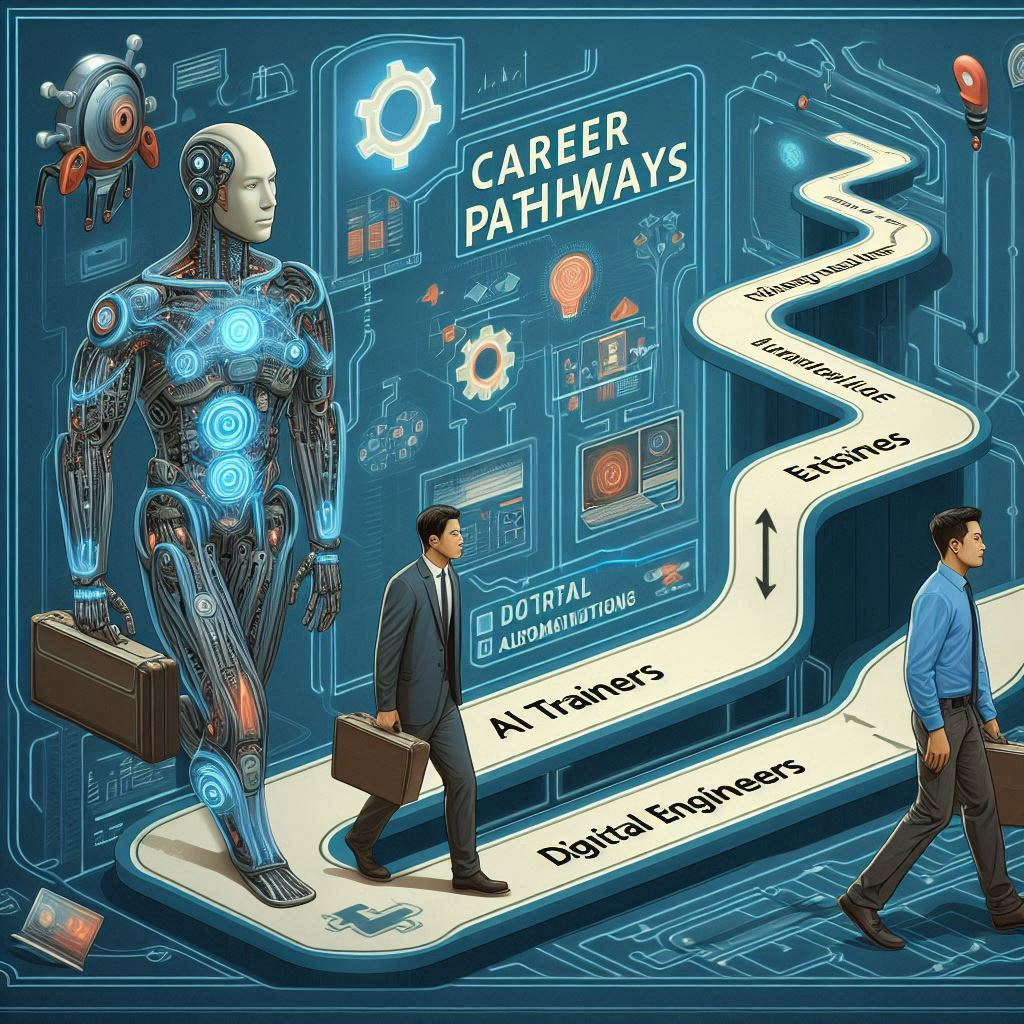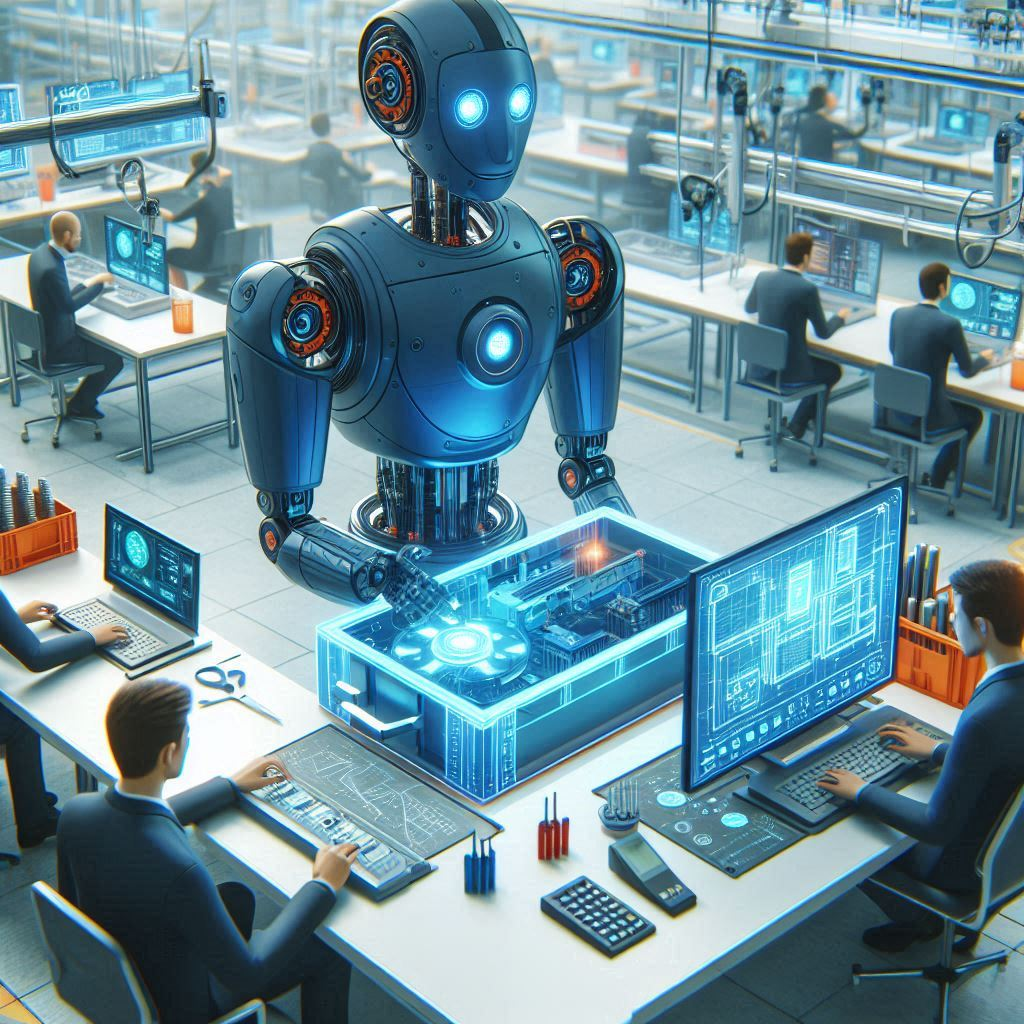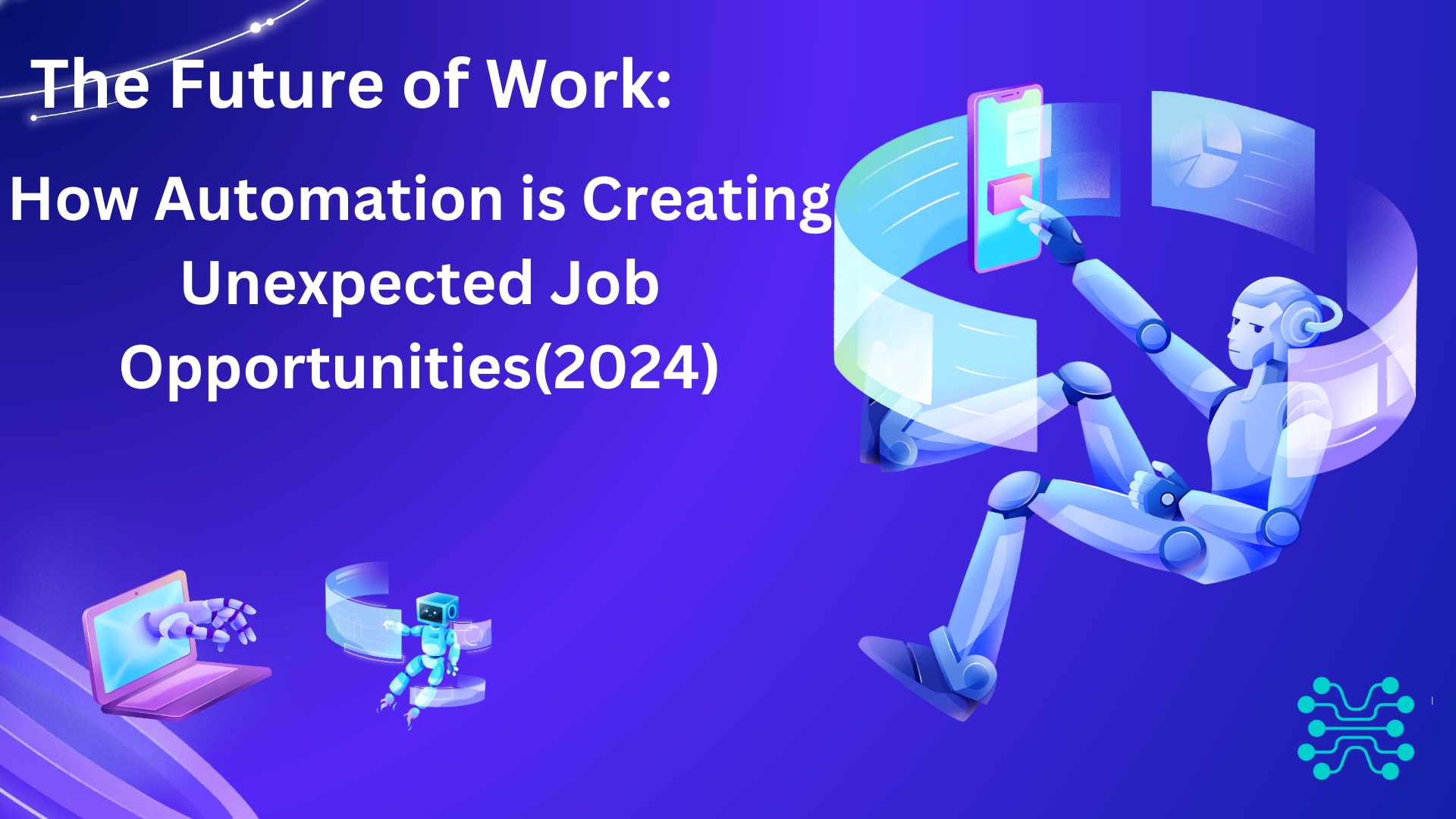The Future of Work: How Automation is Creating Unexpected Job Opportunities
Table of Contents
Introduction
Automation is not just a keywords; it is transforming the workforce in unexpected and interesting manners. Although the phrase may make many people think of robots taking the place of people, the reality is much more nuanced. technology is generating completely positions in sectors that did not even exist ten years ago, in addition to displacing jobs. This essay will examine how automation is changing the labor market and how people may best position themselves to prosper in this dynamic environment.
What is Automation?
Automation is basically the use of technology—especially computers with artificial intelligence (AI)—to carry out tasks without the need for human involvement. the advances processes to make them more efficient, quicker, and frequently smarter. Examples of this include self-checkout kiosks in grocery stores and advanced software running supply chains.
AI’s Role in Automation
AI greatly benefits from AI enables computers to perform activities that previously needed human intuition and decision-making by allowing robots to learn from data and change over time. For example, chatbots driven by AI may now respond to customer care requests, while machine learning algorithms can improve investment portfolios.
Automation’s Results on Conventional Jobs
Loss of Employment Myths versus actuality
A reduction of jobs due to technology is one of the main worries. But it’s true that some jobs are becoming irrelevant due to technology, the claim that this is “killing jobs” is sometimes overblown. Automation is really changing employment rather than completely replacing them. The focus of roles is shifting to include tasks that call for human creativity, empathy, and problem-solving—areas where robots are less successful.
Examples of Automation in the Workplace
technology is an options for certain manual and repetitive operations. Data input, fundamental accounting, and even warehousing operations are a few examples. But instead of creating mass unemployment, technology is creating more intricate and satisfying positions.
How New positions Are Getting Created by Automation
Engineers in Automation
Automation professionals are specialists who create, maintain, as well as improve technology that is automated. As more companies accept these technologies, the requirement for their services will continue to grow. These engineers are essential to contemporary industry because they make sure that automated processes function properly.
Artificial Intelligence Instructors
Incredible, machines also require training! AI trainers instruct machines that use AI on how to comprehend human behavior, language, and preferences. These trainers operate in the background to make sure algorithms appropriately address the wide range of user requests.
Analysts and Scientists of Data
Data is a major component of intelligence, and data scientists are essential members of this ecosystem. They gather, examine, and evaluate enormous volumes of data to support automated systems in making defensible choices. This consequently creates new positions focused on data analysis and management.
Experts in AI and Machine Learning
Experts in machine learning are in high demand as Technology gets more complex. These experts develop the algorithms that let robots learn from their mistakes and increase the precision and efficiency of .
Read more–what is AGI and Power
The Rise of Hybrid Positions
Coupling Automation and Human Skills
There are new positions that call for an intersection of human and technical abilities. Project managers who work with automated systems, for example, must comprehend both the technology and the users of it in order to create a “hybrid” workforce in which humans and machines work.
Roles in Enhanced Decision-Making
Because machines handle data more quickly and effectively than a human could, it can assist people in making better decisions. But ultimately, humans make the decisions, which gives rise to positions in enhanced decision-making, where people supervise automated procedures and offer insights that robots are unable to.
Unexpected Careers for Intelligence Scientists in Automation
Making sure AI systems are developed and used responsibly is the responsibility of AI ethicists. The need for professionals to address concerns of bias, justice, and transparency is expanding as AI careers has a greater impact on day-to-day living.
Supervisor Robots
More than ever, robots and humans collaborate in sectors like manufacturing. Robot supervisors are in charge of keeping an eye on these devices, resolving problems, and guaranteeing the smooth operation of automated processes.
Engineers of Digital Twins
Engineers that specialize in digital twins build virtual versions of real systems. The field of “digital twins” is quickly developing in sectors such as construction and aerospace because it enables organizations to mimic and optimize operations in real-time.
How to Get Ready for Jobs Driven by The use of automation

Essential Skills in High Demand
In order to prosper in an industry driven by intelligence, people need to develop particular talents. These include soft skills like flexibility and critical thinking in addition to technical talents like coding, machine learning, and data analysis.
The training and improving
Maintaining your competitiveness in the labor market of the future requires constant learning. Programs for reskilling and upskilling, like online courses and certificates, can assist people in moving into careers related to automation.
Resources for Education for the Future Industry
For participants considering to establish a career in computerization, there are many resources available through educational institutions, training programs, and internet-based platforms. There are lots of alternatives for learning the skills required for the jobs of future generations, from college programs that prioritize AI to programming boot camps.
The real number Success Stories
- Experts in artificial intelligence are at the forefront of automation, creating the technologies that are revolutionizing whole sectors. In an interview, an AI specialist discusses their professional background and how they challenged the growth of AI careers to prove themselves as successful professionals.
- A pioneer in digital transformation talks about their expertise assisting companies with their automated shift. They talk about the difficulties encountered, the chances generated, and the abilities that have been most helpful to them in their careers.
Manufacturing is the Sector Most Influenced by Automation

Factory has been changed by robotics, from manufacturing processes to quality monitoring. Most of the everyday tasks that used to be performed by humans are now handled by machines and powered by artificial intelligence devices.
Medical Care
Technology is simplifying every aspect of healthcare, including the scheduling of patients and the diagnostic procedures. AI-powered equipment allow doctors diagnose sufferers more accurately and deliver treatments.
Finance
Technology is being used more and more in the banking and finance industries to handle operations, identify a scam, and handle portfolios. New positions in AI-driven financial analysis are consequently developing.
Advantages of Automation for Workers
Productivity across all industries is increased by AI careers, which enables companies to create more with fewer resources. Employee efficiency and job satisfaction are increased when they may concentrate on high-value jobs.
Prioritize problem-solving and creativity
Workers now have more time to concentrate on intricate and innovative problem-solving as machines take care of repetitive duties. Because of this change, workers can now use abilities that robots can’t duplicate to add greater value to their roles.
Automation’s Challenges in the Workplace: Skill Gaps
A growing skill gap is one of the main issues that technology presents. To remain competitive in the labor market, people must constantly update their abilities when new technologies are developed.
Opposition to Change
Employee opposition to technology is common among those who worry about losing their positions. However, businesses can facilitate the shift and highlight the advantages of AI careers through communication and reskilling programs.
Predictions for the Next Ten Years Regarding Productivity and Employment
In the future, technology is anticipated to keep rapidly changing sectors. Certain jobs that don’t even yet existing will arise, while others will change to include more AI-powered resources.\
AI and Collaboration’s Future
More human-machine cooperation is to be expected in the future. Artificial intelligence (AI) will support human intelligence, resulting in more creative and effective work processes.
Conclusion
Machinery aims to improve the workforce by generating new opportunities and not merely replace old jobs. People can put their businesses in an opportunity that is successful within an AI-driven future by getting ready for these shifts. if you need more knowledge about this click it
FAQs
What is automation?
It is the process of carrying out operations without the need for human interaction using technology, such as artificial intelligence to increase productivity and efficiency.
Will all employment be eliminated by automated processes?
No, not all occupations will be replaced by technology. It may displace some jobs, but it also opens up new possibilities, especially in AI and machine learning.
How can I get ready for an automation-related career?
Gaining expertise in coding, AI, and data analysis will help you get ready. Obtaining certifications and taking online courses to upskill is also advantageous.
Which new employment has automation created?
Artificial intelligence engineers, AI ethicists, robot managers, and AI educators make up the new roles.
Which industries are most strongly impacted by automation?
Finance, as well as medical care, and manufacturing are a few of the industries most affected by technology.
